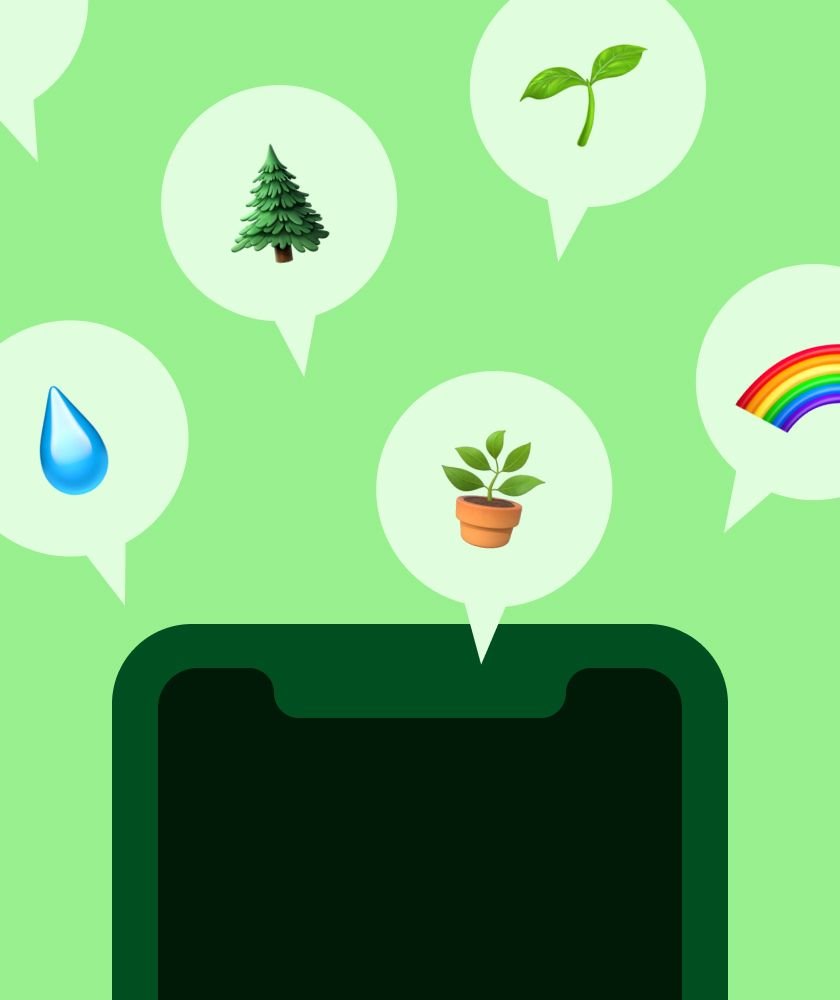And without using the words "effective" and "sustainable" inappropriately.

Last week, someone told me, “If I ever hear about sustainability from someone who doesn't even do recycling, I swear,” insert a random threat. And what could I say? He was right, fake-sustainable communication is not a deal anymore. Exaggerating on sustainability is a truly perverse way of communicating.
If on the one hand our planet, never like today, needs to be listened to and helped, on the other communication has never been so crucial in this situation. Using it in a pharisaical way is very inelegant and, in the long run, devastating.
So I did what, lately, seems to me the most useful thing to do: study negative things and transform them into something positive for my (our) advantage.
Before starting, however, I advise you to be suspicious of those who tell you that sustainability is a concept linked to the environment, because it is not – or at least not anymore. Today sustainability is a transversal theme, as deep as a root.
Consciousness is a state of mind
I started from consciousness and therefore from the knowledge of what it means to "communicate effectively, sustainably", and I discovered that there is no reason not to do it.
By definition (here greatly reduced to the bone), "sustainable" means something that enhances the current and future potential to meet human needs, and which is compatible with the need to protect environmental resources.
Effective is something that produces the desired effect.

Therefore, I deduce that sustainable and effective communication must respond to our goals and do it in such a way as to produce a positive effect on the environment, on society, on the economy, on politics, on the future... on our lives, in short. Every communication we introduce into the world must ensure that its value is useful today and tomorrow, everywhere, for everyone.
Sustainable communication does not only speak of sustainability, but it is.
Sustainable communication is communication aware of its impact.
Sustainable communication is respectful of people.
Sustainable words, yes, but how?
How do you build sustainable communication? At this point, in addition to sustainability, we should introduce "ecology" as another concept to consider. From the Greek "oikos" (house) and "logy" (speech), it is the concept that brings us closest to fair, respectful behaviour. Taking care of your physical and digital home today means using communication that preserves its balance and develops with respect for people and the environment.

Let's see how our words can be sustainable and become active players in safeguarding the future of our society; because sustainable communication doesn't just mean talking about sustainability, but expressing this goal effectively.
- you prefer ethical concepts to materialistic ones: choose your words consciously and reasoned, always keeping in mind that they will have an impact and a consequence on whoever reads them;
- if you want to communicate sustainability, first make sure that you already are and that you know enough: do you know how much a 1 megabyte email "consumes"? On average 20 grams of CO2, the equivalent of a light bulb turned on for 25 minutes;
- respect people's time: if the information you provide is watered down, long-winded, people will feel frustrated and their behavior will reflect on the environment;
- be responsible: choose well the message to promote, the emotions you want to wake up, it is only your responsibility for what you introduce into the environment and into society;
- keep your distance from "wordwashing" (ed): using words only because it is fashionable is counterproductive (for example, saying that our site is green only because we have limited the animations, well, that is not exactly true);
- prefer authentic honesty: make promises you can keep, be transparent in the production chain, offer true, proven and sincere information;
- don't pollute, literally: don't shout with writing, don't use harmful and negative words that pollute digital places frequented by actual human beings.
What about social media?
Good question, Ursula, and here's the answer: social networks are also fundamental in the great sustainable plan of communication and indeed, there is a lot to do on these channels!
Also in this case it is crucial to ask yourself the right questions to build a sustainable and ethical strategy. For example, let's take the most popular question, "how much should I post?" and let's transform it into "how much should I publish aiming to pollute as little as possible?". The answer will come by itself: evaluate how much and which of your information is really useful and of quality for your audience and decide accordingly, so that no useless content is shared.
This makes us understand that we need to change our way of thinking, of interpreting, but above all, of asking questions.

The correct answers to manage social networks in a sustainable way are essentially these:
- do we want to preserve the digital environment? We produce sensible content that works on very specific objectives;
- do we want to add value to the production chain? We always start from the target and ask ourselves what it needs: fun contents must be a "pause", not the usual;
- do we want to talk about true sustainability? Let's make sure we know our impact well (or of the agency) before going too far with information that could jeopardize our credibility.
There are a thousand other ways to build "sustainable", "effective" communication and avoid the use of these same words in a dangerous way. What are yours? See you on Linkedin!

